My name is Jon Beech
I'm Director of the Leeds Asylum Seekers Support Network or LASSN as it is known.
It is particularly lovely to be invited to Sinai this morning. So many of LASSN’s friends, supporters and volunteers come from Sinai.
The people of Sinai have a long and admirable track record of supporting refugee and asylum seeker organisations in the city – in a wide variety of ways – including opening its doors to homeless asylum seekers, as part of the network of WYDAN Winter Shelters.
So, when Pippa first invited me to come today to share some thoughts about human rights, I felt rather overwhelmed.
I started to worry I wouldn’t do the subject justice. I worried how I would make an amusing 10 minute talk and still explain the history of the idea of human rights, its history and use from John Locke, Thomas Paine to the French Revolution and the US constitution via the United Nations.
Or maybe, I thought, I could try and show off my biblical knowledge and try and say something clever about the book of Ezra, and the story of Cyrus the Great freeing the Babylonian slaves and rebuilding the Temple in Jerusalem.
But then it got worse.
As well as telling the story of Human Rights, I then started prevaricating over about whose list of Human Rights I should be speaking about - the Declaration of the Rights of Man, or the UN Declaration in 1948 or the European Convention on Human Rights?
And then, like I usually do, when I feel overwhelmed by the enormousness of an idea or a problem, I took a step back, and started to think in practical terms.
Often, when we talk about human rights we end up taking about big abstract principles. The right to life. The right to freedom of speech. The right to protest. And so on.
But in fact, the story of human rights and the way they are created and maintained is the story of our everyday lives.
I think that all of us are involved in creating and upholding human rights every time we meet someone, or do something that affects another person.
What do I mean by this?
Of course there is a long history of religion, philosophy and law concerning human rights. But what sits behind all this is the idea that there are some things that help humans to flourish, and that human flourishing is something all humans should enjoy.
We can dress this in all sort of legal language, or philosophical ideas – but ultimately talk about human rights is talk about how we can create and uphold places where humans can be themselves, and become the people they want to be.
If you take away the ability of someone to flourish, and you take something away from them make them ever so slightly less than human.
By taking away that potential, you take away part of their humanity.
So, when we talk of human rights, I think we are really talking about the things we do to make sure people are not treated as anything less than human.
I mean the things we do to make sure people are not treated not as a statistic, or a means to an end, a person whose identity has been lost in the process of giving them a label relating to religion or politics or gender or disability or sexuality or whatever.
People from this place or that place. People seeking asylum. People from Leeds. Remainers or Leavers.
And when we talk of human rights, let’s remember we are also talking about hope: a hope that in giving people the space and room to flourish, that they will do just that. And a realisation that to offer someone less than the space and means to flourish is to deny an aspect of their humanity and to deny them that sense of hope.
Many of the people we meet at LASSN are shadows of their former selves. Fleeing war or persecution or hatred in their former countries means they have left some very important things behind: Friends, family, work, property, a knowledge of how the world works. A sense of predictability. As sense of “If I do this then that will happen”. A sense of control, of agency.
As well as the wrench of leaving behind people and places they love, they have often witnessed these same people and places torn down by people whom they fear and who meant them harm.
At such times is hard to assert your human rights beyond your right to exist. And even then, many people fear this right will be taken from them.
The asylum seekers and refugees we know have taken matters into their own hands, and left. By leaving they have asserted their right to avoid certain kinds of pain and distress – or rather - their right to exchange this pain and distress for a different kind – that of exile and estrangement from loved ones.
Most of our work at LASSN is about restoring a sense of humanity, and helping people to flourish once again, and to remind them of a hope that sometimes seems dimmed or close to flickering out.
And this is where our volunteers from Sinai and elsewhere come in.
When I said that “all of us are involved in the creation and upholding of Human rights” what I meant was that everyone can choose how they relate to others – and who they concern themselves with.
At this point I want to make a bit of an aside. As I said at the beginning, one way of looking at human rights is to look at Law. The things written down about what people can and can’t expect in the place they live. Their rights and entitlements. The things the Government or the State guarantees them.
We have - for the moment at least – a legal system that embeds the European Convention on Human Rights. We have and Equality and Human Rights Commission whose job it is to ensure fairness in public life and to prevent groups from being discriminated against. Our government champions progressive legislation granting rights of people to get married (if they want) to whoever they choose. We have laws protecting women from violence, establishing the right to equal pay. The Equality Act brings together any number of protected groups – to ensure no one is picked on, or singled out or treated badly because of who they are.
But – if we think of human rights as a way of describing the conditions in which humans can flourish – these appear to be very poor tools.
Because these rights do not apply to all humans – not even all humans living in the UK. They only apply to those humans who can appeal to the law, to have them enforced.
And my point extends far beyond making sure that everyone can access the help they need to ensure the law protects them.
The rights and entitlements enjoyed by most people in the UK do not apply to people who are subject to immigration control.
We say some 25 year old asylum seekers need £37 a week to live on, when income support levels for 25 year olds who are not seeking asylum are £73.
We say some asylum seekers do not need any money to live on, and that it is illegal for them to work.
We say those same asylum seekers should also pay for their NHS treatment, and that they can be imprisoned and detained for any reason at any time.
But I don’t just want to rant on about the way asylum seekers are treated. I want to talk about everyone living in the UK.
Because for all our laws and convention on human rights – they don’t even cover the basics.
Our human rights laws do not guarantee people the right food. Or to shelter. Or to money. Or to friendship. Or kindness. Or love
And you would think these things are the bare minimum – the very essentials that underpin human flourishing.
Which brings me back to my point about the volunteers and supporters from Sinai who help so many people across Leeds, and to you as well.
Because it is them – not the laws of the land, or abstract principles – it is those volunteers and activists who are creating and upholding the places where humans can be themselves, and become the people they want to be.
These activists and volunteers who, by treating human beings as human beings, remind people that there is hope, and a future that is better than right now.
They do this by offering kindness, solidarity and practical help.
They are the ones volunteering at PAFRAS, or welcoming strangers into their homes or synagogues to make sure they don’t have to sleep out.
They are the ones running Cafes like Toast Love Coffee on Roundhay Road, extending a welcome to anyone - regardless of how much money they do or don’t have – and providing a space and a shelter full of coffee and compassion.
They are the ones teaching English to mums that can’t get out of the house to ESOL classes.
And they are the ones who speak up when they’re sat round the dinner table when someone offers an opinion about group of people they’ve never met or don’t know.
Or says that one group of people deserve to be treated with greater humanity than others. Because of where they were born. Or because they have a piece of paper that someone else doesn’t have.
So what does this mean for you?
Much as I think you are all wonderful and good people, I don’t want you all to down tools and start volunteering at LASSN or even in the refugee sector.
And you’ll be pleased to know my purpose in coming here was not to try and tap you up for donations either.
My purpose was to extend a challenge to each one of you. What are you doing to help create and uphold places where humans can be themselves, and become the people they want to be?
Because there are great swathes of this city and this country and this world where people’s ability to be or to become themselves isn’t possible.
In schools where kids are bullied because of where they’re from and hospitals where people with learning disabilities are segregated and restrained.
On twitter, where women are routinely harassed and threatened because of their politics, their religion or heritage. On airport runways where peaceful protestors are charged under anti- terror legislation.
On the back of the bikes that delivering your takeaway, or in the in the warehouses where goods are picked before they’re delivered to your door.
In the managed zone in Holbeck and the temporary Traveller site on Kirkstall road and in Armley Gaol.
When you see people whose circumstances or even whose choices mean that they are denied the ability to be or becoming everything they can be – what can you do or say?
Do you accept that the main role of some individuals, some groups of people is to be warning to others? To be a lesson in what happens when you find yourself on the wrong side of the law or the wrong side of history?
Thirty years ago, there was short tour of benefit gigs in support of Amnesty International called a Conspiracy of Hope. I invite you to join just such a conspiracy this morning.
Thank you for inviting me today. I’ll be helping out with a study group afterwards, so please come and say hello, and let me know what you think of the thoughts I’ve offered this morning.

